Boarders Gather, Here's the Secret of Delicious Hainan Rice Dish with Rice Cooker
Apparently, serving delicious Hainan rice like in a restaurant can also be done with just a rice cooker!
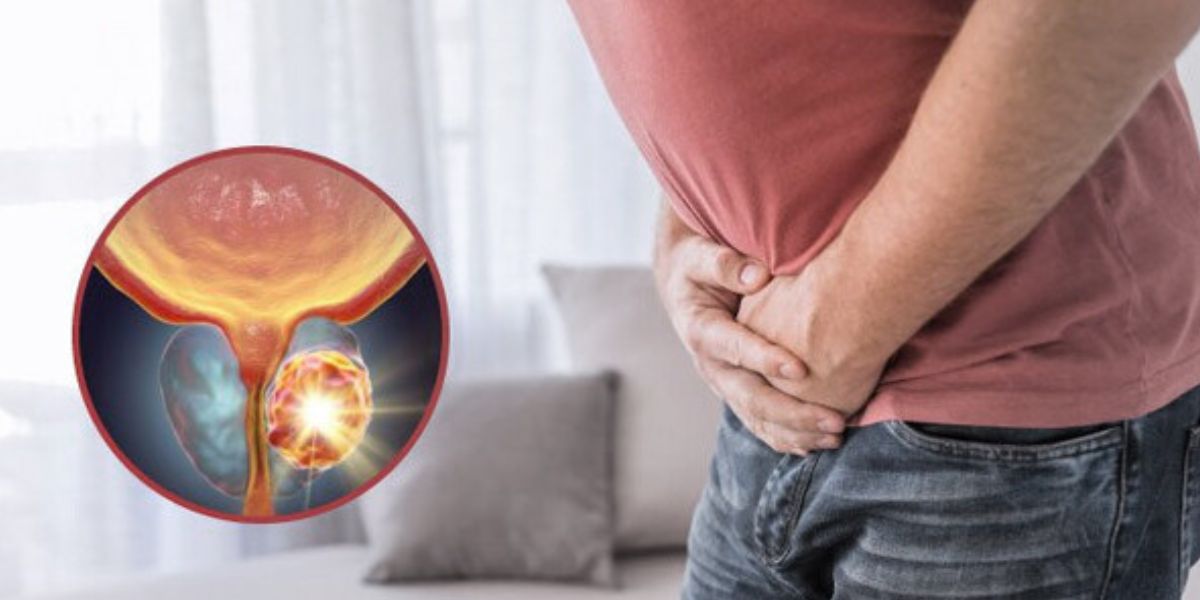
Kapanlagi.com - Natural medicines are often chosen by those who are looking for alternative solutions to various health problems, including prostate disorders in adult men over 50 years old.
A common problem that is often faced is prostate enlargement, which in medical terms is known as Benign Prostatic Hyperplasia (BPH).
Prostate enlargement occurs due to excessive growth of prostate gland cells, which can cause swelling and compression of the urethra, resulting in limited urine flow.
Therefore, it is important to have a deeper understanding of natural medicines that can be an alternative for managing prostate health.
Here are some natural prostate medicines quoted from various sources!
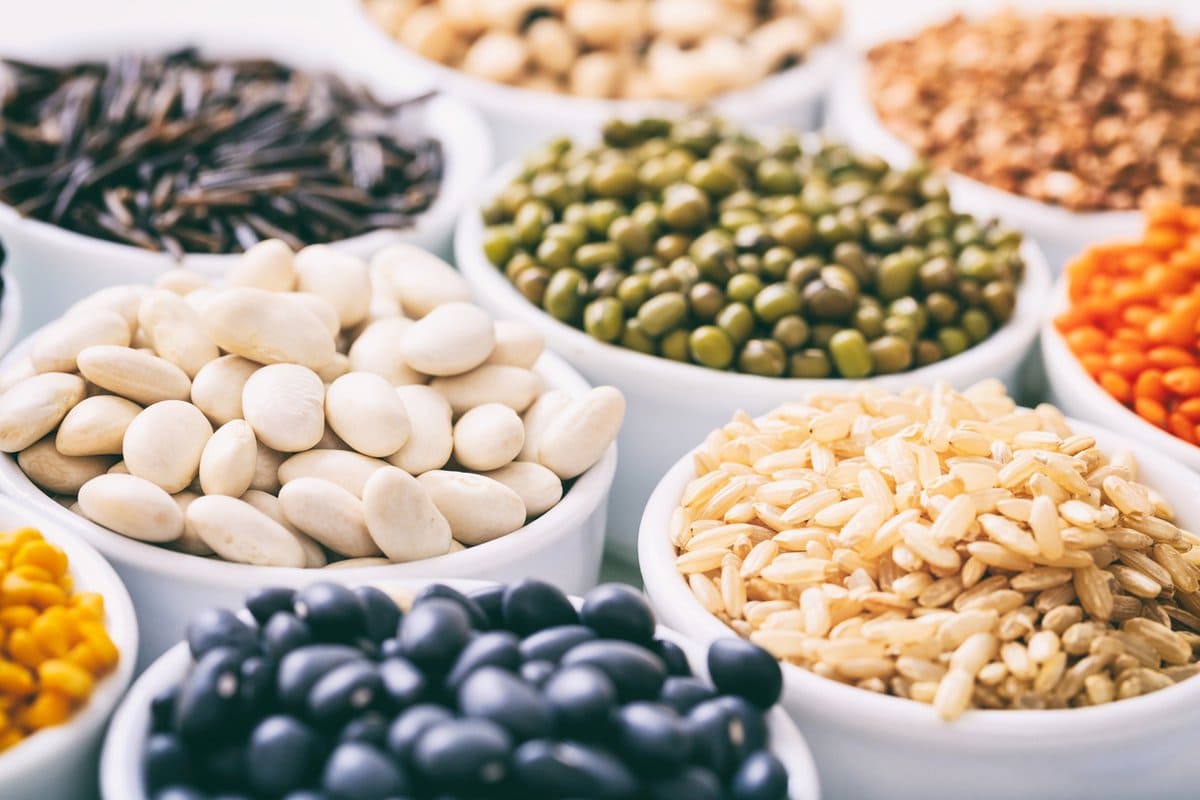
livelytable.com
Zinc or seng has been proven to play an important role in reducing symptoms associated with prostate enlargement, known as Benign Prostatic Hyperplasia (BPH).
A deficiency in zinc can increase the risk of BPH, and therefore, maintaining adequate zinc levels in the body is key to preventing and managing prostate disorders.
Zinc can be consumed through various ways, either through vitamin supplements or zinc-rich foods.
Zinc can be found in various types of foods, including poultry, seafood, as well as certain grains and legumes, such as sesame seeds and pumpkin.
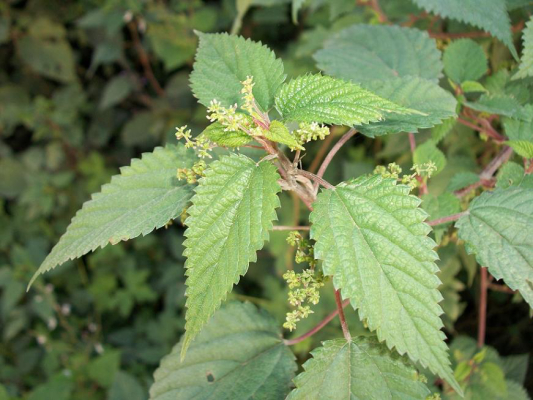
herbal-organic.com
Stinging nettle leaves, besides being known as a medicinal plant that contains antioxidant compounds, also have anti-inflammatory properties similar to saw palmetto.
Both of these plants are known to have potential in addressing prostate problems, especially in treating common urinary problems associated with prostate enlargement or Benign Prostatic Hyperplasia (BPH).
The benefits of stinging nettle leaves are not limited to prostate problems, but also involve a number of other urinary system-related disorders.
It is important to note that the combination of stinging nettle leaves with saw palmetto is often used to achieve optimal results.
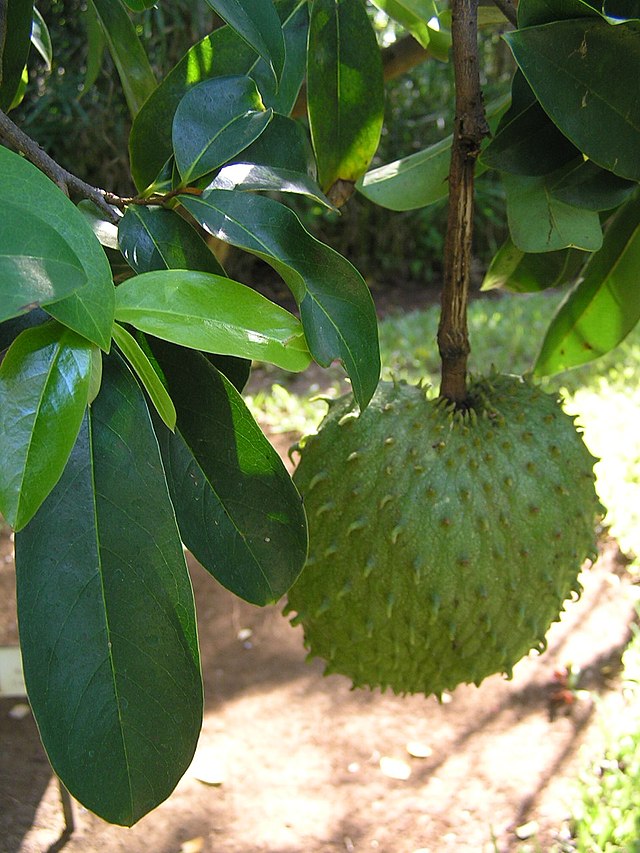
Wikipedia
Natural prostate medicine that is believed to be the most powerful without the need for surgery procedures comes in the form of plants, with soursop leaves being one prominent option.
Soursop leaves, besides being known for cancer treatment, also become the focus in handling prostate cancer.
Its benefits are recognized as a preventive of cancer cell development, making it a promising natural alternative in managing prostate health issues without having to face surgical procedures that may be avoided by some people.
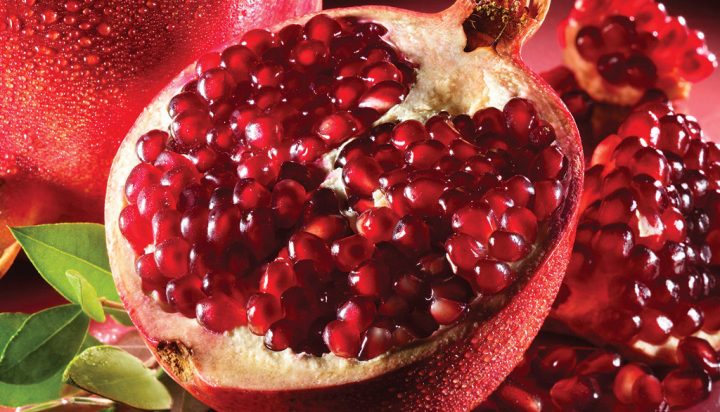
Hypermart
Pomegranate, besides providing a refreshing taste, is also recognized to have significant benefits for body health, including as an herbal medicine for prostate problems.
The antioxidant content in pomegranate is believed to play an important role in slowing down the development of prostate cancer and other prostate disorders.
The presence of antioxidants in this fruit is an added value, providing natural support to maintain prostate health and prevent potential risks of related diseases.
Prostate cancer, a condition involving the growth of abnormal cells in the prostate, can generally be indicated through PSA (Prostate-Specific Antigen) levels.
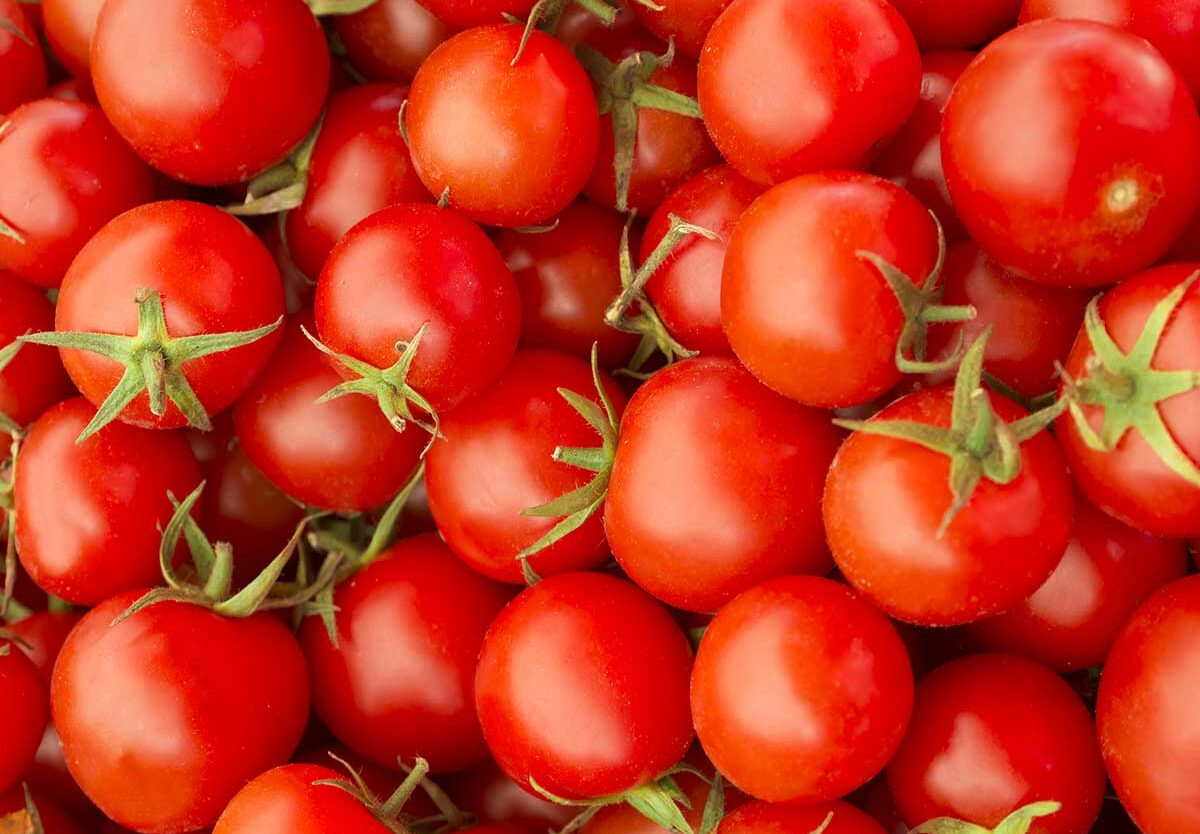
nationaltoday.com
Natural prostate remedies that are considered the most effective without involving surgical procedures can be found in foods that contain lycopene. Lycopene itself is a natural pigment found in various fruits and vegetables.
Consuming foods rich in lycopene is believed to provide significant benefits in improving prostate health and reducing levels of specific prostate antigens.
Therefore, emphasis on consuming foods rich in lycopene can be an important part of prostate disorder prevention and management strategies.
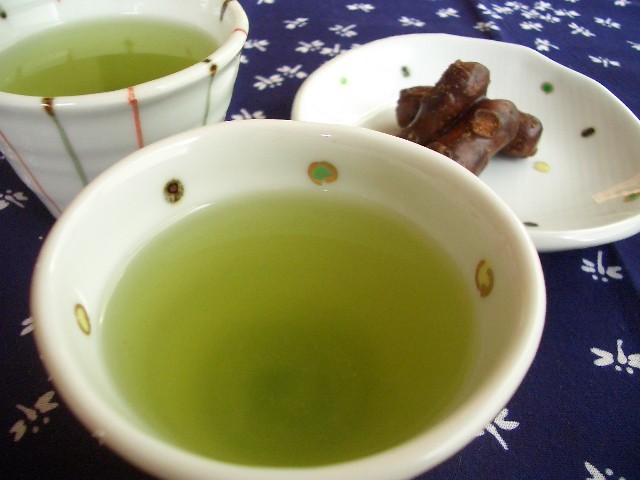
Wikipedia
Green tea is a beverage rich in antioxidants, particularly Epigallocatechin-3-gallate (EGCG).
A journal article titled 'Epigallocatechin-3-gallate's Effect on Benign Prostatic Hyperplasia Cells' highlights that antioxidants, such as those found in green tea, have the ability to enhance the immune system.
Although green tea can provide prostate health benefits through its antioxidant content, it is important to note that this drink contains caffeine.
Caffeine, although having stimulating effects that can increase alertness, can also stimulate the bladder and increase the urge to urinate.
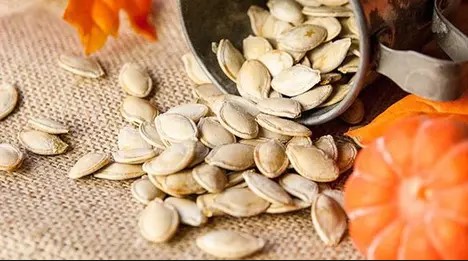
fantabulosity.com
Pumpkin seeds are recognized as a highly effective natural remedy for prostate problems without the need for surgery. The success of pumpkin seeds in addressing prostate issues is related to the presence of beta-sitosterol in them.
This substance has elements similar to cholesterol found in some other plants.
In a journal article titled 'Nutrition and Benign Prostatic Hyperplasia,' it is mentioned that beta-sitosterol in pumpkin seeds can provide positive effects by improving urine flow and helping to empty the bladder.
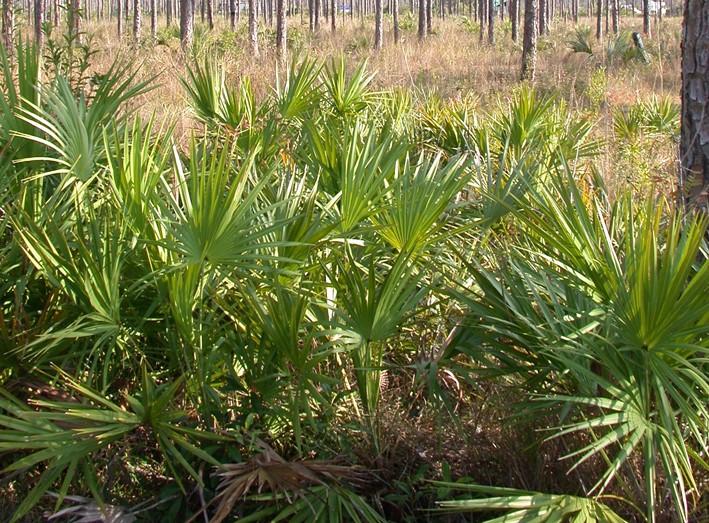
Kew Gardens
Saw palmetto, which is a type of palm tree commonly found in the United States, has gained attention in the world of men's health.
This plant is known and believed to have beneficial effects on health, especially related to prostate care and preventing hair loss.
The active ingredients in saw palmetto, such as phytosterols and fatty acids, are believed to have positive effects on prostate health and can help reduce symptoms of Benign Prostatic Hyperplasia (BPH), a common condition of prostate enlargement in men.
One effective treatment for prostate disorders is Prostam.
Prostam is a medicine specially formulated for prostate treatment, containing the active ingredient Tamsulosin HCl used to treat benign prostatic hyperplasia.
Prostate disorders can be treated, and one treatment option is Tamsulosin. Tamsulosin is a type of alpha-blocker medication designed to relax the muscles in the prostate and bladder neck.
It aims to facilitate the process of urination and reduce symptoms of prostate enlargement, such as weak urine flow and decreased pressure to urinate frequently.
Overall, early signs that can be recognized when someone is experiencing prostate disorders include:
1. More frequent urination habits.
2. Inability to completely empty the bladder, characterized by the presence of residual urine.
3. Sleep disturbances that occur due to being repeatedly awakened by the urge to urinate.
In men aged 30-40 years, a common problem related to the prostate is prostatitis, which is an inflammation of the prostate.
The occurrence of prostatitis can be influenced by factors such as stress and lifestyle, including unhealthy eating habits, consumption of spicy foods, and excessive alcohol consumption.
To reduce potential risks, it is recommended to limit the intake of processed dairy products such as cheese, yogurt, butter, and ice cream.
Prostate cancer patients are also advised to avoid foods high in sugar as part of the list of food restrictions.
(kpl/haz)
Cobain For You Page (FYP) Yang kamu suka ada di sini,
lihat isinya
Apparently, serving delicious Hainan rice like in a restaurant can also be done with just a rice cooker!
For Telkomsel users, here are various ways to buy the latest Telkomsel packages in 2023.
Curious about the explanation of the meaning of dreams about maggots according to Javanese Primbon? To find out, just take a look at the following explanations.
Well, to find out what primbon wuku is, just read the following explanation.
Curious, what is the explanation of the meaning of dreaming about an ex getting married according to Javanese beliefs and psychology? To find out, just read the following review.
What privileges can you enjoy?
Activating the latest 2023 Telkomsel card is not difficult. Not only one, there are several options that can be done, all of which can be done practically and easily. Curious, how to do it?
Elia Hathaway, also known as Elia Myron, is currently going viral on various social media platforms. He is requesting the Ministry of Religious Affairs (Kemenag) of Indonesia to reform the interpretation of the Qur'an. Netizens' responses to this vary.
For body health, rest plays a big role in restoring stamina and having a positive impact on both physical and mental health. Quality sleep is the best method of rest and is a key factor for health and quality of life.
In general, Scorpio is said to be a zodiac sign that is very synonymous with mysterious traits. Scorpio is very good at keeping secrets, including about their personality in front of others. Is it true?
Curious about the explanation of the prediction of successful male primbon based on weton and its characteristics? Just read the following explanation.
To prevent this stomach problem from happening to you, take a look at the following secrets!